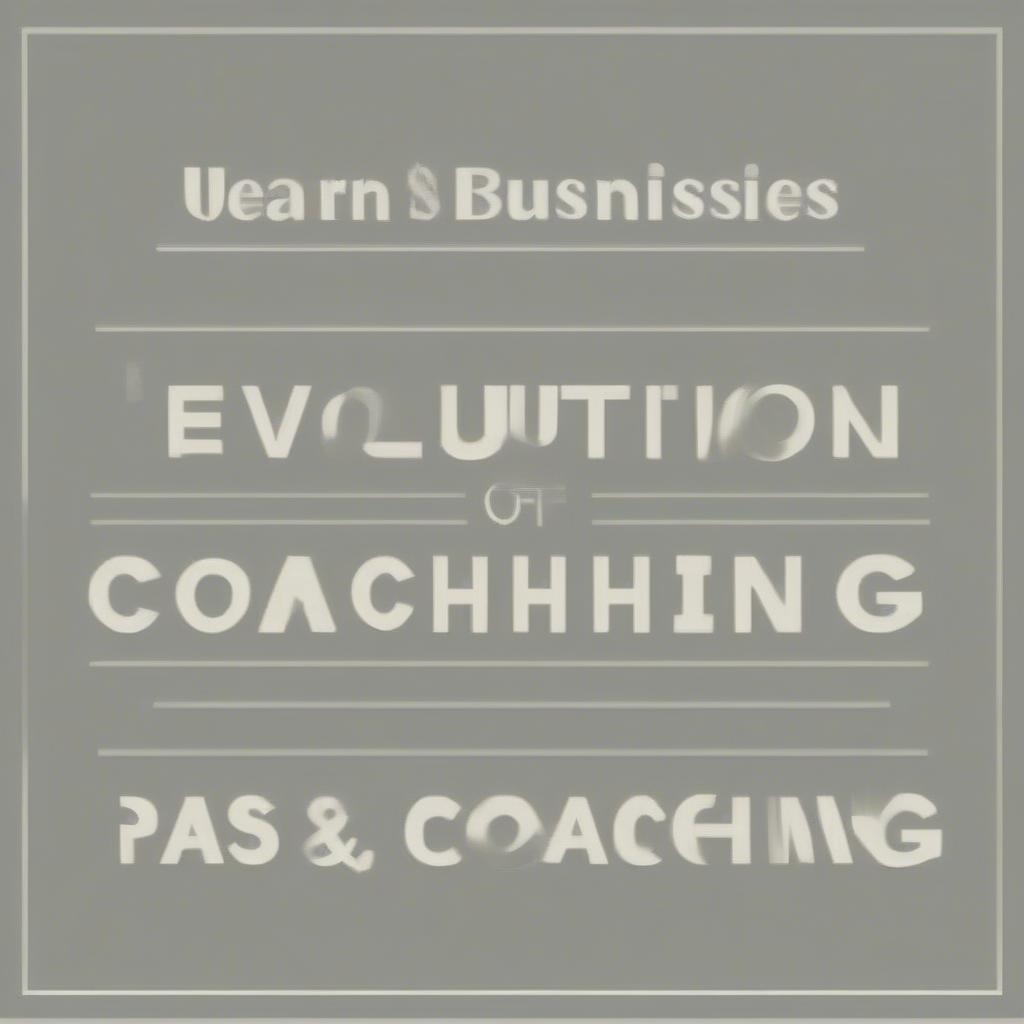
The world of coaching is rewarding, a true testament to the power of human connection and growth. You witness breakthroughs, empower change, and guide others towards their potential. But this noble pursuit can also be incredibly demanding, leaving you, the coach, feeling depleted and uninspired. This article isn’t just about theoretical concepts; it’s a practical guide to help you maintain your coaching motivation, effectively avoid burnout, and prioritize self-care tips so you can thrive in this vital role.
Why Coaches Burn Out: Understanding the Root Causes
Before we dive into solutions, it’s essential to understand why coaching burnout is so prevalent. Recognizing the triggers is the first step towards prevention.
The Emotional Labor of Coaching
- Constant Giving: As a coach, your role revolves around giving – your time, energy, empathy, and expertise. This continuous outflow, without adequate replenishment, can lead to emotional exhaustion.
- Absorbing Client Emotions: You’re often privy to your clients’ struggles, frustrations, and anxieties. Absorbing these emotions, even with professional boundaries, takes a toll.
- Pressure to Perform: The expectation to consistently deliver positive results can be incredibly stressful. The pressure to be ‘on’ all the time can wear you down.
- Lack of Recognition: Unlike many professions, the results of coaching often aren’t immediately apparent. It’s easy to feel like your efforts are unseen or unappreciated.
Workload and Time Management
- Overbooked Schedules: The desire to help everyone can lead to overbooking, leaving you with no downtime and a sense of being constantly rushed.
- Administrative Overload: Juggling client sessions, marketing, and business administration can become overwhelming, diverting your focus from the joy of coaching.
- Blurred Boundaries: When work and personal life blend, it’s difficult to switch off, leading to chronic stress and a feeling of being constantly "on call."
Neglecting Self-Care
- Prioritizing Clients over Yourself: It’s common for coaches to put their clients’ needs above their own, leaving little time for personal well-being.
- Lack of Physical and Mental Rest: Ignoring physical needs like sleep, exercise, and healthy eating contributes to both mental and physical depletion.
- Social Isolation: Focusing intensely on work can lead to neglecting your personal relationships, contributing to feelings of isolation.
Re-igniting Your Coaching Motivation: Strategies to Stay Inspired
Losing your spark for coaching is a common experience. Re-igniting that fire requires proactive effort and a conscious shift in perspective.
The Power of Purpose and Passion
- Revisit Your "Why": Why did you become a coach in the first place? Connecting with your original passion can reignite your enthusiasm and remind you of the positive impact you make.
- Action Step: Write down three reasons why you love coaching and reflect on these regularly.
- Focus on Impact: Shift your focus from the tasks to the outcomes. Celebrate even small wins for your clients and acknowledge the difference you’re making in their lives.
- Action Step: Keep a “Wins” journal, documenting client successes, progress, and positive feedback.
- Explore New Coaching Niches: If you’re feeling stagnant, consider branching into a new niche or area of expertise. Learning new things can be incredibly stimulating and reignite your interest.
Connecting with Your Coaching Community
- Find a Mentor or Peer Group: Connect with experienced coaches for support, advice, and a sense of community. Knowing you’re not alone can make a significant difference.
- Action Step: Search online for coaching communities or reach out to other coaches in your network.
- Share Your Experiences: Talking about your challenges and successes with peers can provide a fresh perspective and help you feel less isolated.
- Collaborate with Others: Joint ventures and collaborations with other coaches can add variety to your work and provide new learning opportunities.
Embracing Continuous Learning
- Attend Workshops and Training: Investing in your professional development not only enhances your skills but also keeps you engaged and motivated.
- Read Books and Articles: Stay abreast of the latest coaching techniques and research to keep your knowledge current and your practice relevant.
- Engage in Self-Reflection: Regularly evaluate your coaching methods, identify areas for improvement, and adapt your approach accordingly.
Practical Strategies for Avoiding Burnout: Protecting Your Well-being
Avoiding burnout isn’t about working harder; it’s about working smarter and prioritizing your well-being. These self-care tips are essential for long-term sustainability in your coaching career.
Setting Healthy Boundaries
- Define Your Working Hours: Create a clear schedule that includes specific work hours and downtime. Stick to this schedule as much as possible to prevent work from encroaching on your personal life.
- Template Example:
- Monday-Friday: 9:00 AM – 5:00 PM (Client sessions, administrative tasks)
- Saturday & Sunday: Off
- Template Example:
- Establish Clear Communication Protocols: Inform clients of your preferred communication channels and response times. Avoid checking emails outside of work hours.
- Learn to Say "No": Don’t overbook yourself. It’s okay to decline new clients or projects if you’re already feeling overwhelmed.
Prioritizing Self-Care
- Physical Wellness:
- Regular Exercise: Find an activity you enjoy and aim for at least 30 minutes of physical activity most days of the week.
- Healthy Diet: Nourish your body with whole foods, and avoid excessive caffeine, alcohol, and processed foods.
- Adequate Sleep: Aim for 7-8 hours of quality sleep each night. Create a calming bedtime routine to promote restful sleep.
- Mental Wellness:
- Mindfulness and Meditation: Practice mindfulness techniques to reduce stress and enhance your mental clarity.
- Journaling: Write down your thoughts, feelings, and experiences to process emotions and gain insights.
- Creative Outlets: Engage in activities that allow you to express yourself creatively, such as painting, writing, or music.
- Emotional Wellness:
- Spend Time with Loved Ones: Make time for family and friends who provide support and joy.
- Seek Professional Help: Don’t hesitate to seek counseling or therapy if you’re struggling with stress, anxiety, or burnout.
- Practice Gratitude: Regularly reflect on the positive aspects of your life and appreciate the good things around you.
Optimizing Your Work Environment
- Designate a Dedicated Workspace: Create a comfortable and organized workspace that promotes focus and productivity.
- Minimize Distractions: Limit interruptions during work hours to maximize your efficiency and reduce stress.
- Take Regular Breaks: Step away from your work periodically to rest your mind and re-energize.
Actionable Steps: Templates and Tools for Success
Implementing these strategies requires practical tools and a structured approach. Here are some templates and resources to help you stay on track:
Time Management Template
| Time | Monday | Tuesday | Wednesday | Thursday | Friday | Saturday | Sunday |
|---|---|---|---|---|---|---|---|
| 8:00 – 9:00 AM | Morning Routine | Morning Routine | Morning Routine | Morning Routine | Morning Routine | Free | Free |
| 9:00 – 12:00 PM | Client Sessions | Client Sessions | Client Sessions | Client Sessions | Client Sessions | Free | Free |
| 12:00 – 1:00 PM | Lunch | Lunch | Lunch | Lunch | Lunch | Free | Free |
| 1:00 – 4:00 PM | Client Sessions / Admin | Admin / Marketing | Client Sessions | Client Sessions / Admin | Admin / Marketing | Free | Free |
| 4:00 – 5:00 PM | Planning | Planning | Planning | Planning | Planning | Free | Free |
| 5:00 PM Onward | Personal Time | Personal Time | Personal Time | Personal Time | Personal Time | Free | Free |
- Adaptation: This is a flexible template; adjust it based on your specific needs and working style.
Self-Care Checklist
-
Physical:
- [ ] Exercise for at least 30 minutes
- [ ] Eat a healthy meal
- [ ] Drink 8 glasses of water
- [ ] Get 7-8 hours of sleep
-
Mental:
- [ ] Practice mindfulness/meditation
- [ ] Journal for 15 minutes
- [ ] Read a book
-
Emotional:
- [ ] Spend time with loved ones
- [ ] Engage in a hobby
- [ ] Practice gratitude
-
Usage: Use this checklist daily or weekly to monitor and prioritize self-care activities.
Client Communication Protocol
-
Preferred Communication Channel: Email
-
Response Time: Within 24 business hours
-
Availability: Monday-Friday, 9:00 AM – 5:00 PM
-
Emergency Contact: [Provide an alternative contact or note if none exists]
-
Implementation: Share this protocol with your clients at the start of the coaching relationship.
Learn Business: Your Partner in Coaching Success
As you focus on nurturing your clients, it’s essential to also nurture your business. Learn Business understands the unique challenges coaches face and provides tailored guidance and resources to support your success. We offer comprehensive templates, step-by-step guides, and actionable strategies designed to streamline your operations and help you thrive.
How Learn Business Supports Coaches
- Business Templates: Access a library of ready-to-use templates for contracts, invoices, client onboarding, marketing plans, and more. These templates are specifically designed for the coaching industry, saving you valuable time and effort.
- Marketing Strategies: Learn how to attract and retain clients through effective marketing techniques, including social media strategies, email marketing, and content creation.
- Financial Management: Develop a sound financial foundation with our easy-to-use templates for tracking income and expenses, managing budgets, and setting financial goals.
- Client Management Tools: Streamline your client interactions with our templates for session notes, goal setting, and progress tracking.
- Community Support: Connect with other coaches through our online community, share your experiences, and receive support and advice.
- Expert Guidance: Benefit from our expert team of business mentors, providing tailored guidance to help you achieve your business goals.
- Tailored to Coaching Needs: Unlike generic business resources, Learn Business is designed specifically with the needs and challenges of coaches in mind. We understand the nuances of your profession, ensuring that the guidance and tools we provide are both relevant and impactful.
Benefits of Using Learn Business
- Increased Efficiency: Save time and energy by utilizing our pre-built templates and efficient processes.
- Improved Organization: Keep your business organized and structured, minimizing stress and maximizing productivity.
- Enhanced Profitability: Attract more clients and optimize your revenue with our effective marketing and financial management tools.
- Reduced Overwhelm: Delegate administrative tasks and focus on your passion for coaching, ensuring you have more time to support and empower your clients.
- Professional Image: Present a polished and professional image to your clients, instilling trust and confidence in your coaching practice.
- Sustainable Growth: Develop a sustainable and scalable coaching business with our strategic guidance, ensuring long-term success.
By integrating Learn Business into your coaching practice, you’ll not only streamline your operations but also free up valuable time and energy to focus on what you do best – empowering your clients to achieve their goals. Learn Business is more than just a tool; it’s your partner in creating a successful, sustainable, and fulfilling coaching career.
Conclusion: Thriving as a Coach – A Holistic Approach
Maintaining coaching motivation and avoiding burnout is an ongoing process that requires a holistic approach. It’s not about finding a quick fix but about creating sustainable practices that support your well-being and passion for coaching. By understanding the root causes of burnout, implementing practical strategies for self-care, and leveraging resources like Learn Business, you can not only survive but thrive in this rewarding profession. Remember, a healthy, motivated coach is best equipped to guide and empower others. Your well-being is just as important as your clients’ success. Prioritize your self-care, nurture your passions, and continue making a positive impact on the world. The world needs great coaches, and that starts with taking care of yourself.



Leave a Reply